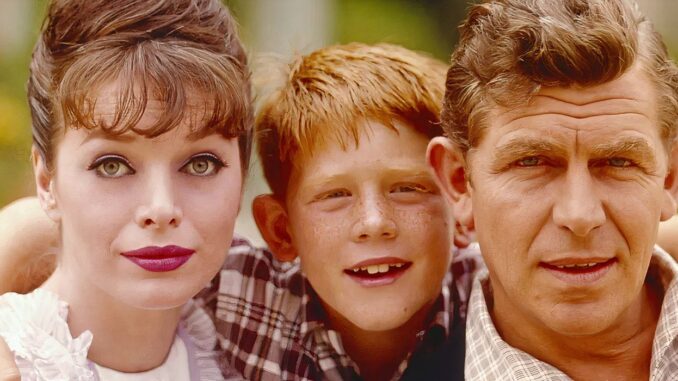
The Ghost in the Barber Shop: Opie's Family Secret That the Show Never Explained
Mayberry, North Carolina, was a pastoral symphony on television, a halcyon dreamscape of simpler times. Sunshine seemed to fall heavier there, laughter echoed clearer, and every moral dilemma found its neat, folksy resolution by sundown. At the heart of this idyllic world was Sheriff Andy Taylor, his innocent son Opie, and the loving, if occasionally flustered, Aunt Bee. They were the quintessential American family, a beacon of wholesomeness and common sense. Yet, beneath the perfectly trimmed hedges and the squeak of the front porch swing, a profound secret whispered through the sun-drenched streets – a secret not of scandal or intrigue, but of a gaping, unacknowledged void. The show never explained Opie's mother.
This wasn't a plot hole in the traditional sense, something carelessly forgotten or later contradicted. It was an intentional, yet unspoken, lacuna, a deliberate narrative omission that loomed larger precisely because it was never addressed. We knew Opie's mother was gone; her absence was the very foundation upon which the Andy-Opie-Aunt Bee dynamic was built. But how she was gone, when she was gone, who she was – these were questions Mayberry simply never answered. There was no wistful glance at a framed photograph, no casual mention of a bygone illness, no solemn visit to a gravesite, not even a euphemism about her having "passed on." She simply wasn't there, and no one, least of all the show’s characters, ever seemed to feel the need to explain why.
This "secret by omission" serves as a fascinating illustration of television's evolving narrative priorities. In the 1960s, a show like The Andy Griffith Show wasn't aiming for the gritty realism or complex backstories of modern drama. Its purpose was comfort, gentle humor, and moral uplift. To introduce the raw, painful reality of death, especially the death of a parent, would have fundamentally altered Mayberry's gossamer veil of innocence. The show’s strength lay in its ability to navigate life's minor challenges with grace and humor, not to confront its deepest tragedies. The mother's absence was a convenient narrative device, allowing for the unique father-son bond to flourish, and for Aunt Bee to fill a crucial, loving role, without the messy emotional baggage that a detailed explanation might entail.
Yet, this very silence creates a powerful, almost mythical quality around her. She becomes the silent cornerstone upon which the perfect family unit is built. Her absence isn't a flaw; it's a testament to the show's focus on the present – on the lessons learned by the fishing pond, the wisdom dispensed from the courthouse, and the warmth radiating from Aunt Bee's kitchen. Her unspoken story allows the audience to project their own understanding of loss, or perhaps, to simply accept the premise without question, just as the citizens of Mayberry seemed to. It was an unspoken pact between the creators and the audience: we understood the setup, and we didn't need the morbid details to appreciate the warmth and wisdom of the life that blossomed in her wake.
In a strange way, this "unexplained secret" becomes one of Mayberry's most enduring and curious characteristics. It highlights the show’s almost utopian nature, where even profound loss can be transmuted into a quiet strength, a foundation for a new kind of family. The ghost in the barber shop, the one whose name was never spoken and whose fate was never revealed, allowed the sunlight to shine unimpeded on Andy, Opie, and Aunt Bee, ensuring that the dream of Mayberry remained pure, simple, and eternally comforting. It was a secret that needed no explanation, for its very silence spoke volumes about the world the show so lovingly created.
https://www.youtube.com/shorts/7D0KXhFT_7Y?feature=share